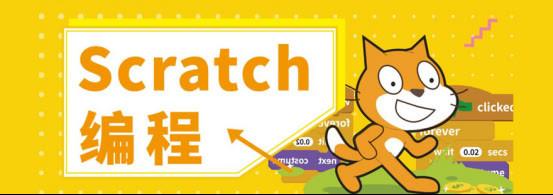2024年2月8日发(作者:)

名词变复数及三单变化规则总结
第一篇:名词变复数及三单变化规则总结
名词变复数规则:
1.一般名词复数是在名词后面加上“s”,如map→maps,bag→bags,book-books等;
2.以s,x,sh,ch结尾的词加“es”,如bus→buses,watch→watches, box-boxes等;
3.以f或fe结尾的名词变复数时,去掉f,fe 加ves的名词有:
half→halves knife→knives leaf→leaves wolf→wolves wife→wives
life→lives thief→thieves 4.以o 结尾的名词变复数时:
a)加s的名词有:photo→photos,piano→pianos,radio→radios,zoo→zoos b)加es的名词有: potato→potatoes
tomato→tomatoes
5.以辅音字母+y结尾的词,变y为i加es,如baby→babies,
family-families, study-studies等;
以元音字母+ y结尾的名词变复数时,直接加s变复数,如monkey→monkeys,holiday→holidays,storey→storeys(楼层);
变ee的单词:foot-feet, goose-geese,tooth-teeth;
7.a变e的单词: man-men, woman-women, policeman-policemen;8.复数与原形一致的单词:fish-fish, sheep-sheep, deer-deer, Chinese-Chinese, Japanese-Japanese;9.最特殊的一个:German-Germans.第三人称单数时动词变化规则:
1、一般现在时主语为第三人称单数时的动词变化
①在一般现在时中,当主语为第三人称单数时,动词要用“s”型(即第三人称单数形式)。
②所谓动词“s”型的构成,可按名词变复数的规则来记,即: i)在动词尾直接加 s。如:play—plays,want—wants,work—works,know—knows,help—helps,get—gets)ii)以字母s、x、ch、
sh或o结尾的动词加-es;如:guess—guesses,fix—fixes,teach—teaches,brush—brushes,go—goes,do—does,watch—watches,catch—catches)iii)以辅音字母+y结尾的动词,先变y为i,再加-es。如:study—studies,carry—carries,fly—flies,worry—worries
动词加ing变化规则:
1、一般情况下,在动词原形后面直接加ing,-going ,doing, walking, talking, speaking, sleeping,cooking.2、以不发音的e 结尾,去e加ing,(刮脸)-shaving,coming,
living, dancing, making.3、在少数几个以 –ie 结尾的动词后:须将–ie 变作y,再加-ing。(这些动词词典一般均注明) – dying;tie –
tying,lie – lying
4、在闭音节的单音节动词后、以重读闭音节结尾的多音节动词,而末尾只有一个辅音字母时,将这个辅音字母双写(x除外),然后再加 – – sitting;run – running;begin – beginning;forget –
forgetting 特别要注意:这和第三人称一般现在时的词尾变化不同,动词词尾如为“辅音字母 + y” 时不变,在其后直接加 –ing。 – studying;carry– carrying;fly – flying;worry – worrying
第二篇:名词单复数变化
名词的单复数形式变化
一、最常见的就是直接在名词后面+s Boy—boys(男孩)cat—cats(猫)room—rooms(房间)horse—horses(马)tree—trees(树)rose—roses(玫瑰)
二、如果名词是以x、s、sh、ch结尾的,在名词后面+es
Branch—branches(树枝)match—matches(火柴)fox—foxes(狐狸)class—classes(班级)bus—buses(公交车)Box—boxes(箱子)watch—watches(手表)dish—dishes(盘子)coach—coaches(车厢)couch—couches(沙发)
三、如果名词是以辅音加y结尾的,要变y为i加es;如果不是以辅音结尾的,就直接在y后面加上s Family—families(家庭)
study—studies(学习)party—parties(派对)baby—babies(宝贝)city—cities(城市)
Boy—boys(男孩)toy—toys(玩具)way—ways(方法、路)monkey—monkeys(猴子)key—keys(钥匙)
四、当名词是以fe或f结尾的,要变fe或f为v,再加es;有的直接加s Thief—thieves(小偷)shelf—shelves(书架)leaf—leaves(树叶)half—halves(一半)Wolf—wolves(狼)life—lives(生活、生命)wife—wives(妻子)knife—knives(刀)Roof—roofs(房顶)belief—beliefs(信念)proof—proofs(证据)
五、当名词是以o结尾有生命的加es,没有生命的加s Potato—potatoes(土豆)tomato—tomatoes(西红柿)
hero—heroes(英雄)Photo—photos(相片)zoo—zoos(动物园)radio—radios(广播)piano—pianos(钢琴)
六、名词复数不规则变化
Child—children(小孩)mouse—mice(老鼠)man—men(男人)woman—women(女人)German—Germans(德国人)
Englishman—Englishmen(英国人)Frenchman---frenchmen(法国人)foot—feet(足,脚)tooth—teeth(牙齿)1)单复数同形
Deer—deer(鹿)fish—fish(鱼)Chinese—Chinese(中国人)Japanese—Japanese(日本人)2)集体名词,名词以单数的形式出现,但是实际上是指的复数 People(人们)police(警察)public(公众)
第三篇:名词变复数不规则变化
名词变复数不规则变化:
1.单词内部发生变化:口诀“oo常常变ee,男人女人a变e”
eg:foot→feet脚;tooth→teeth牙齿;man→men男人;woman→women女人; 2.单复数相同:“羊鱼小鹿无变化,单数复数是一家”
eg:sheep→sheep绵羊;fish→fish鱼;deer→deer鹿;
3.不规则变化:child→children孩子;mouse→mice老鼠;
4“某国人”的复数有三种类型: 口诀“中日不变,英法变,其它S加后边”
(1)Chinese, Japanese单数复数同形,不需加s;
1(2)Englishman, Frenchman, Dutchman复数要把 man 变为men;
(3)其他各国人以–an,-ian收尾的均直接加s。如:Americans,
Australians, Germans 5.一般只有复数,没有单数的有:people,
shoes, glasses, gloves, shorts, clothes, socks 6.代词的复数: It, he,
she →they;I→we;you→you;this→these;that→those
二.不可数名词:
⒈不可数名词概念:不可以数出数目的名词叫做不可数名词。
⒉不可数名词特点:
⑴不可数名词没有复数形式,也不能与a, an及数词连用,常作单数看待。
例: water
There’s some water in the
My favourite food is noodles.⑵不可数名词如表数量,常和a
bottle of, a glass of a pieces of 等名词词组连用。如表示复数,只把量词改为复数。
例:a bottle of pop一瓶汽水 , two glasses of orange juice 两杯桔子汁,three cups of tea 三杯茶,a piece of paper一张纸
⑶有些物质名词有时可数,有时不可数,要根据上下文决定,其意义也有所不同。
Glass(玻璃)glasses(眼镜)
⑷集体名词看作整体时,谓语用单数;指成员时,谓语用复数。
His family is a large family like animals.指整体
指成员
⑸有的名词单复数意思不同:
例:hair 和fruit 通常作单数,表示总体。My hair is black.我的
头发是黑色的。I like ’s good for you.我喜欢水果,水果对你的身体有好处。
但如果表示若干根头发或各种水果,则需用复数形式.Danny has
three hairs.丹尼有三根头发。She likes pears, peaches and other
fruits.他喜欢梨,桃和其它水果。
第四篇:三单及名词单复数练习
名词单复数与动词三单
一、请写出下列名词的复数形式,没有复数形式的请划出/。(25分)bus______ fox______ boy______ day______ zoo______ tree______
deer______ fish______ city______ leaf______ life______ milk______
foot______ horse______ mouse______ tooth______ woman______
broom______ juice______ water______ people______ branch______
family______ ox______ country______
二、填入所给名词的正确形式。(5分)
______________ are playing football now.(child)
are ten ___________________in our school.(woman teacher) of
__________ live in __________.(German)
are three _________ and five _______ in the
room.(Chinese, German) you please give me some
__________?(milk)
三、请写出下列动词的三人称单数及现在分词形式。(20分)
sit_____________ _____________ swim_____________ _____________
say_____________ _____________ play_____________ _____________
run_____________ _____________ wash_____________ _____________
cry_____________ _____________ draw_____________ _____________
die_____________ _____________ make_____________ _____________
see_____________ _____________ have_____________ _____________
go_____________ _____________ write_____________ _____________
do_____________ _____________ study_____________ _____________
watch_____________ _____________ dance_____________ _____________
stop_____________ ______________ sing_____________ ______________
四、用填空。(10分)
1._____ you ride a bike after school? Yes, I ________.2.______
your sister like PE? No, she ______ _______ the students
have? They have some ______ Linda go to school? She
goes to school on ______ not speak speaks
Chinese.6.______ they watch TV on Sundays? Yes, they ______.
father and mother
your
______
father
not read newspapers
CDs? No,
on
he
Saturday.8.________ you know that girl? Yes, she is my
sister.9.________ have
_____________. ________ you ________ your homework? We
don't like it.五、用一般现在时填空。(5分)
mother______not_____(like)_____(like)Chinese.2.______you______(go)to school by bus? No, I_____(go)to school by
Wang ______(swim)every day.4.I ___(like)
____ ______ _____(not like)_____ you ______(go)to
school? I _____(go)to school at five every day.六、用进行时填空。(10分)
1.I ____ _____(read)English ______ _______(go)to the
park ________ ________(have)an English
______ they _____(do)? They _____ _____(sit)in the mother
________ ________(clean)the room boy ________(draw)a
picture
mother
_____ you
girls ________(sing)in
nice
the
food
照看孩子。
A.I am looking after the baby.B.I'm look aftering the baby.C.I
look am aftering the baby.D.I looking after the
__________(cook)some
______(do)now?
_________(have)an English lesson.七、单项选择。(10分)()1.我在
baby.()2._____friend's making______a kite.A.I, me , my ,
me , his() the woman ______ yellow your teacher?
g on g ()!The twins_____their
mother do the wanting helping
looking()5._____are the birds doing? They are singing in a
() she____something?
g ()7.你在干什么? is you
doing? are you do? are you doing? do
you do?() are you listening_____? A./ ()9.我正在听他说话。A.I listening to him.B.I'm listening to him.C.I'm listen
to him.D.I'm listening him.() are_____their
g g away g on
八、用现在进行时完成下列句子:(10分)___________you____________(do)? 2.I_________________(sing)an
English ________________he__________________(mend)?
__________________(mend)a
car.5._________you______________(fly)a
7.__________you_____________(ask)questions?
_________________________(play)games boys
_______(run)., someone _______(sing)in the
classroom.九、选择填空:(5分)
() ______ over there now? g sing
singing()'s nine students ______ a music
having()!The boy _______.
crying ()'t talk arents ______.
sleeping sleeping() the man _______ tea or milk?
ng
十、按要求进行句型转换:(10分)
!Lily is dancing.(改为一般疑问句)
kite?
the
Yes,
boat? ____________.6.___________she_______________(sit)in
________________________________________________________________
are three monkeys.(改为一般疑问句)
________________________________________________________________
can see many fish in the lake.(改为一般疑问句)
________________________________________________________________ like to ride bikes in the park.(改为一般疑问句)
________________________________________________________________
is looking for her watch.(改为否定句)
________________________________________________________________
6.I can draw a sun in the picture.(改为否定句)
________________________________________________________________
goes to the English classes everyday.(改为否定句)________________________________________________________________
White is watching TV.(对划线部分提问)
________________________________________________________________
9.I am doing homework.(改为否定句)
________________________________________________________________
are waiting for you at the library.(就划线部分提问)________________________________________________________________
第五篇:名词变复数规则变化
名词变复数规则变化
1.一般名词复数是在名词后面加上“s”,如map→maps,bag→bags等;
2.以s,sh,ch,x等结尾的词加“es”,如bus→buses,watch→watches等;
3.以辅音字母+y结尾的词,变y为i加es,如baby→babies等;以元音字母+ y结尾的名词变复数时,直接加s变复数,如monkey→monkeys,holiday→holidays,storey→storeys(楼层);
4.以o 结尾的名词变复数时:
a)加s的名词有:photo→photos,piano→pianos,radio→radios,zoo→zoos b)加es的名词有:
potato→potatoes tomato→tomatoes 5.以f或fe结尾的名词变复数时:
a)加s的名词有:belief→beliefs roof→roofs safe→safes
gulf→gulfs
b)去掉f,fe 加ves的名词有:
half→halves knife→knives leaf→leaves wolf→wolves
wife→wives life→lives thief→thieves
一、绝大多数的可数名词的复数形式,是在该词末尾加上后辍-s。
读音变化:结尾是清辅音读[s],结尾是浊辅音或元音读[z]。
例es
二、凡是以s、z、x、ch、sh结尾的词,在该词末尾加上后辍-es构成复数。
读音变化:统一加读[iz]。
例:bus→buses;quiz→quizzes;fox→foxes;match→matches;flash→flashes box →boxes;watch →watches;actress →actresses;class
→classes;coach(长途车)→coaches;dress →dresses;sandwich
→sandwiches;toothbrush →toothbrushes;waitress(女侍者)→waitresses
三、以辅音字母+y结尾的名词,将y改变为i,再加-es。
读音变化:加读[z]。
例:candy→candies;daisy→babies;puppy
→dictionaries;cherry
(雏菊)→daisies;fairy→fairies;lady→ladies;story→stories
→strawberries;baby
→libraries;dictionary
→activities
strawberry
:friend→friends;cat→cats;style→styles;sport→sports;piece→piec→puppies;library
→cherries;activity
四、以-o结尾的名词,如果不是外来词或缩写,就加-es,否则加-s构成复数。(有生命的加es,无生命的加s)
读音变化:加读[z]。
例:tomato→tomatoes;potato→potatoes;torpedo(鱼雷)→torpedoes;bingo(彩票式游戏)→bingoes 反例:silo(青贮塔)→silos;piano→pianos(外来词);photo→photos;macro(宏指令,计机算语言)→macros(缩写词)
五、以-f或-fe结尾的名词,多为将-f或-fe改变为-ves,但有例外。
读音变化:尾音[f]改读[vz]。
例:knife→knives;life→lives;leaf→leaves;staff(员工)→staves;scarf(围巾)→scarves 目前搜集的直接加s:roof-roofs, belief-beliefs,gulf(海湾)-gulfs, serf(农奴)-serfs,safe-safes,chief(负责人)-chiefs
这几个可变可不变: scarf-scarfs,handkerchief-handkerchiefs
六、以-us结尾的名词(多为外来词),通常将-us改变为-i构成复数。

本文发布于:2024-02-08 05:20:37,感谢您对本站的认可!
本文链接:https://www.4u4v.net/it/170734083766656.html
版权声明:本站内容均来自互联网,仅供演示用,请勿用于商业和其他非法用途。如果侵犯了您的权益请与我们联系,我们将在24小时内删除。
| 留言与评论(共有 0 条评论) |